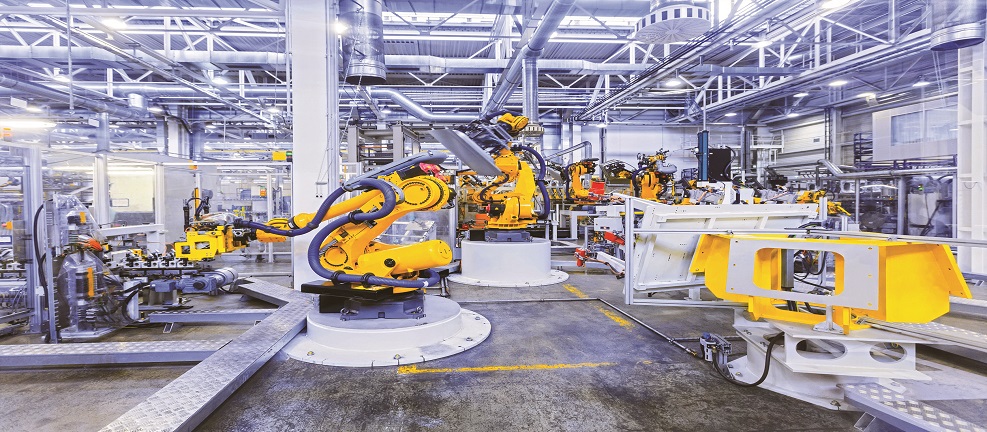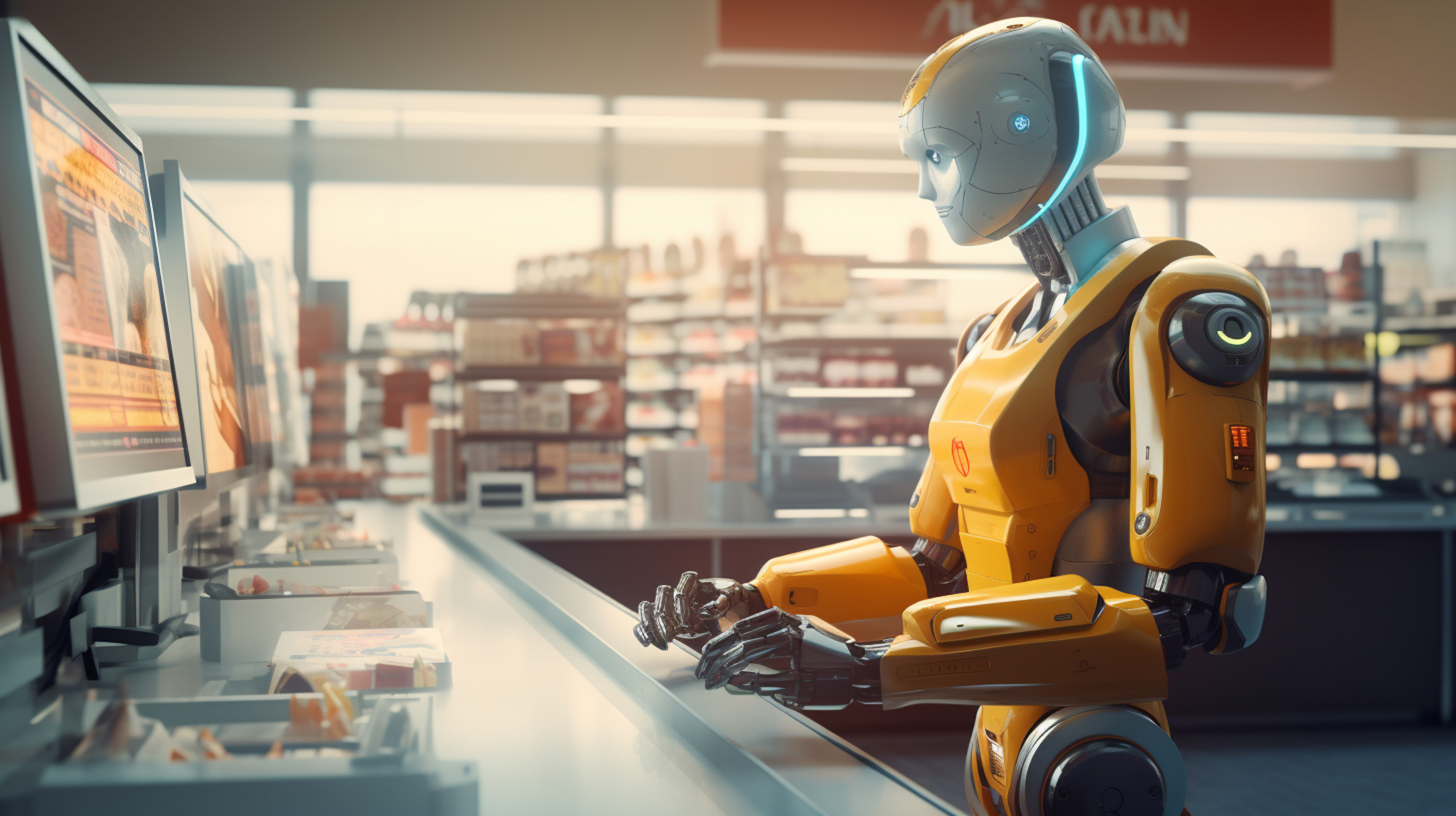Automation is increasingly becoming crucial for manufacturing companies year over year. More manufacturers explore ways to steer efficiency and reduce costs, through automation in manufacturing factories powered by Industry 4.0, and other connected manufacturing solutions. We will discuss what is manufacturing automation, its benefits, and how it’s transforming industries.
What Does Manufacturing Automation Mean?
Automation in manufacturing is the use of equipment powered by technologies like robotics, IoT, AI, etc., to automate processes and systems to operate a factory more efficiently to enhance productivity and profitability. The areas that are automated in a factory typically include processing or assembly, inspection and quality assurance, inventory management, workplace safety management, data analytics, and shopfloor and material planning.
In the past, a tool would perform a specialized task, but technological advancements have transformed the tools to perform multiple tasks. It’s quickly becoming imperative to consider the automation of the manufacturing process, as some studies have shown that 76% of manufacturing companies use automation to improve their productivity as a key strategy for boosting growth. Manufacturers have shifted their focus to improving this area because it’ll help them.
The objective of manufacturing automation is to increase production capacity while reducing costs. Automation, as we know it today, emerged during the Second Industrial Revolution with moving assembly lines and large plants introduced by Henry Ford in his automotive factory. The origin of the term “automation” is attributed to D.S. Harder, the engineering manager at Ford in the 1940s.
Types of Manufacturing Automation
Automation is not a unique process, it has many forms. Manufacturers need to choose the type of automation that is right for their factory. We will go over three common automation types that are commonly adopted by manufacturers:
-
Fixed Automation is typically used by factories that produce one item repeatedly in one way in large volumes.
-
Programmable Automation is a type of automation that can be programmed and customized to perform several functions, producing multiple product types in a batch process in lesser time. This type involves downtime because the automation systems have to be reprogrammed to perform a function different from the current one.
- Flexible Automation is a hybrid form of the other two. This automation type is commonly used in real-time or on-demand production.
Industries Adopting Automation in Manufacturing Processes
Manufactures across most industries are embracing automation, but the following industries are increasingly using it:
-
Automotives – This is the sector that started adopting automation, where automation was adopted in the second industrial revolution. The industry has benefited from the use of Robotic process automation (RPA) in increasing both productivity and safety in the factories, to achieve more quality output in less time. Automation minimizes human error in processes that require precision manufacturing. It provides automated reporting, documentation, and built-in human safety features.
-
Pharmaceuticals and Medical Devices – This industry expects tasks to be performed with more precision by reducing human error rates. Automation with the support of documentation, and reporting, helps manufacturing of medical devices and pharmaceutical products enhance productivity and precision.
-
Food & Beverages – Manufacturing automation in food and beverage factories ensures that consistency is achieved in each product and improves food safety to reduce the risks of product recalls. Automated inventory tracking and management, and automated analytics can support improved decision-making to minimize food waste or product loss.
-
Consumer Packaged Products – Automation helps consumer packaged goods (CPG) manufacturers to accelerate or slow down production in line with the changes in demand without additional cost and losing loyal customers to the competition. Manufacturing automation in consumer packaged goods (CPG) covers all parts of the supply chain.
-
Electronics – The players in this industry adopt automation in manufacturing to increase production and remove defective products to meet the spike in demand. s demand for electronics and as well ensure a high level of quality expectation.
- Packaging – The players in the packaging segment automate their manufacturing process to stay competitive, ensure employee safety, and improve flexibility to produce larger quantities and more diverse products.
Gains from Automated Manufacturing
Automation brings a number of benefits to manufacturing organizations. We will go over some of the prominent areas where improvement from automation is measurable and visible.
Reduced Process Time and Cost
Automation helps manufacturing companies rise production speed to respond quickly and effectively to market and demand changes. This makes them competitive in the market. Automated machinery can give more quality output in less time. Robotics supported by advanced sensors can ensure quality standards, produce more in less time, reduce defects, and ultimately reduce costs.
Increased Accuracy and Safety
Lesser human error is another key benefit of automation that enhances not only the product quality but also ensures better safety for employees working on the shop floor. This reduces downtimes, recalls, maintenance, and human injuries.
Addressing Labor Shortage and Skills Gap
The sills gap and labor shortage are big challenges for manufacturing organizations, which can impact their bottom line and survival. Automation technology helps manufacturing companies address both of these problems.
Enhanced Analytics and Supply Chain Tracking
Sensors, robotics, and advanced equipment can track inventory, predict and plan system maintenance, and provide insights throughout the supply chain. Analytics shares data that can help companies in better planning and decision-making, and improved ROI.
The Future of Manufacturing Automation
Robotics is getting smarter and more intelligent with the support of artificial intelligence, IoT, and machine learning. Their ability of robotics and connected technologies to manage complex tasks with more efficiency will continue to help manufacturers improve their processes. We are likely to see an accelerated use and advancement of Artificial Intelligence, Robotics, IoT, Machine Learning, Cloud Computing, Data Analytics, and other related digital technologies.
Conclusion
There is a widespread apprehension that manufacturing automation will be a threat to the jobs currently performed by humans. This is not fully true as people are capable of adapting to changes. The real objective is not and will not be replacing human workers, but to allow them to perform more critical problem-solving, creative, innovative, and management roles leaving physically laborious, dangerous, and repetitive tasks to robots.
In today’s world, small to medium manufacturing companies cannot remain competitive in the market without embracing automation in their process. The challenge is that they may not be able to develop the required automation technologies in-house or engage technology companies because of the exorbitant cost, but they can create a team of top talents through TaaS (Task as a Service) platforms to automate their manufacturing processes to grow and stay profitable.




